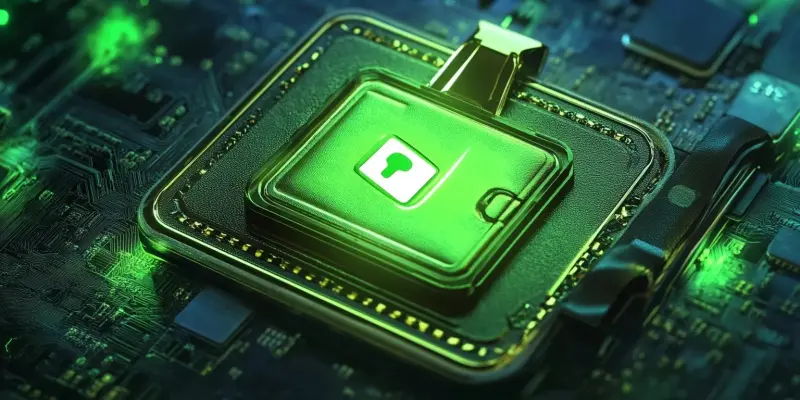Digital payments have surged in South Africa, with more people opting to tap or scan from their smartphones rather than using cash or cards. Digital wallet usage grew by 9% in 2023, with around 60% of South Africans now preferring digital wallets for their security, convenience, and ease of payment tracking. Just a few years ago, mobile payments were a niche service catering primarily to tech-savvy users. Since then, digital wallets and mobile payments have expanded from upscale suburban coffee shops to major retail chains, e-commerce apps, and even informal traders. As digital wallets become more popular, it’s essential to understand how to secure them effectively to protect financial data and personal information.
Digital wallets offer a fast and easy way to pay anyone, anytime, anywhere, without physical cash or cards, and they often provide greater security. These wallets integrate biometric authentication, tokenization, and two-factor verification features which make them safer than traditional payment methods. Additionally, digital payments come with value-added features. For instance, some apps allow users to split restaurant bills with friends easily or transfer money to other individuals. Others integrate additional digital services, such as storing loyalty cards or offering merchant rewards, enhancing the user experience while maintaining convenience and security.
Understanding Digital Wallets
Most digital wallets and mobile payment services in South Africa require you to link a credit or debit card to an app to function effectively. Google Pay, for example, leverages NFC technology to enable wireless connections with merchants’ card machines. By tapping your phone near the device, you can quickly complete a payment. Apart from physical stores, these apps also support e-commerce transactions, making online shopping more secure and streamlined. Meanwhile, apps like SnapScan and Zapper use QR codes for payments. You simply point your smartphone’s camera at a barcode to scan it and make your payment. Apps like MTN Mobile Money (MoMo) allow unbanked users to transact with selected merchants or send money to any cellphone number.
The increasing diversity and versatility of digital wallets highlight the evolution of mobile payment technology in South Africa. As digital wallets and mobile payments continue to gain popularity, understanding their operational mechanics becomes even more critical. Users need to familiarize themselves with the different methods these apps employ to facilitate payments. Considering the varying technologies—from NFC to QR codes—it is crucial to select a digital wallet that aligns with individual preferences and security needs. By understanding how these digital wallets function, users can leverage their full potential while keeping financial transactions secure.
Best Practices for Securing Your Digital Wallet
Despite the enhanced security features that digital wallets offer, users must take additional steps to protect their data. One robust measure is employing two-factor authentication (2FA) for apps containing financial data or payment functionalities. This adds an extra layer of security by requiring both a password and a second piece of information, often a PIN texted to your phone or a code generated by an authenticator app. Another effective strategy is opting for virtual cards. Many South African banks now support virtual cards, which can be generated through banking apps and added to digital wallets. These virtual cards have dynamic CVVs that change regularly, making it difficult for unauthorized parties to steal your information. If a virtual card is compromised, it can be quickly canceled and replaced, ensuring your funds remain secure.
Tracking your statements regularly is another crucial practice. Vigilantly monitor transactions on your banking app and promptly report any unusual charges to your card issuer, regardless of how small they are. Creating a strong password or passcode for your phone and ensuring it remains locked when not in use is vital for securing your digital wallet. Utilizing fingerprint or facial recognition adds another layer of protection. Finally, exercise caution with links received via emails or messages that claim to be from your bank or payment service. Avoid clicking on suspicious links, as they could be phishing attempts aimed at stealing your sensitive information.
Additional Security Tips
Digital payments in South Africa have seen a significant increase, with more people choosing to tap or scan from their smartphones rather than using cash or cards. Digital wallet usage grew by 9% in 2023, with about 60% of South Africans now favoring this method due to its security, convenience, and ease of tracking payments. A few years ago, mobile payments were mostly used by tech enthusiasts. Today, digital wallets and mobile payments are widespread, found in upscale coffee shops, major retail chains, e-commerce platforms, and even among informal traders. As digital wallets gain popularity, it is crucial to know how to secure them to safeguard financial data and personal information.
Digital wallets provide a fast, easy, and secure way to make payments anywhere, without the need for physical cash or cards. These wallets often include biometric authentication, tokenization, and two-factor verification, making them more secure than traditional payment methods. They also offer value-added features; for example, some apps make it simple to split a bill or transfer money, and others store loyalty cards or offer merchant rewards, enhancing both convenience and security for users.

